What Comes Next After Biden’s Foreign Policy Marathon
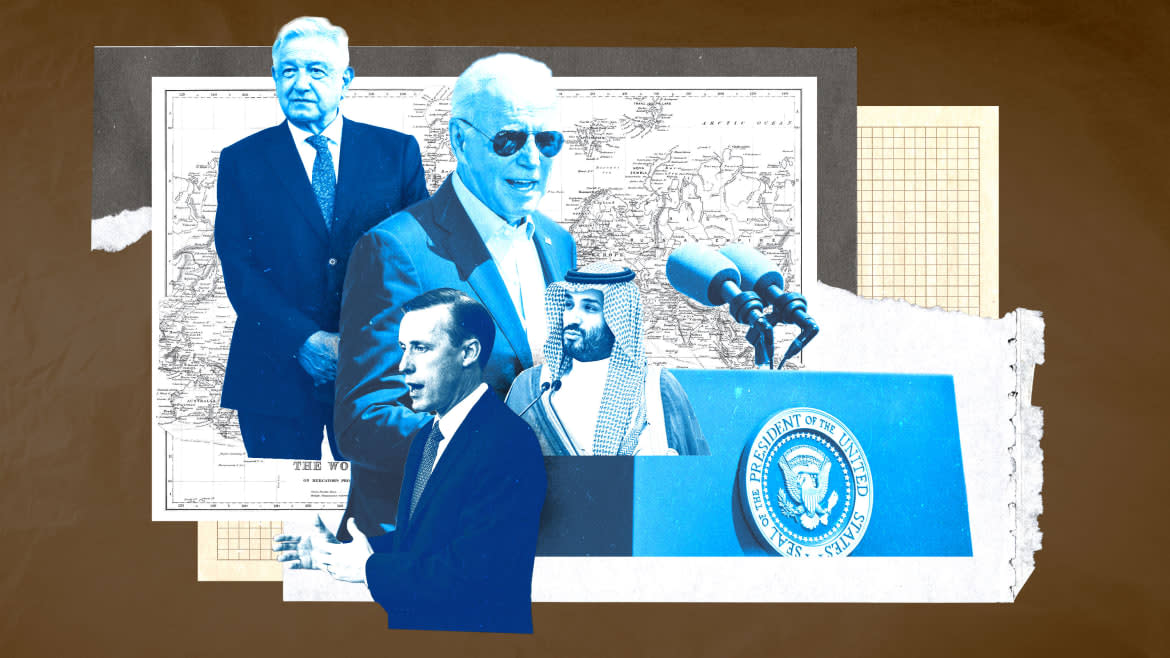
- Oops!Something went wrong.Please try again later.
- Oops!Something went wrong.Please try again later.
For Joe Biden, the past two months have been a diplomatic marathon.
Although the president has recently endured questions suggesting that he is too old for the office he holds, what he has accomplished has very likely exceeded in intensity, duration, challenges, and miles traveled than anything we have seen from any of Biden’s recent predecessors—all younger men than he.
The president’s foreign policy blitz has come in the midst of numerous crises, both at home and abroad. Inflation, a right-wing activist Supreme Court, and an opposition party in which many are still more inclined to disbelieve the results of the 2020 election than to accept he is the legitimately elected President of the United States. Then there’s the intransigence of a senator in his own party—Joe Manchin—who stymies Biden’s agenda at every turn. Oh, and now the president has COVID.
Amid all that, however, many Americans have missed out on the significance of what President Biden has accomplished in just nine weeks.
Biden Walks a Tightrope on Human Rights During His Middle East Trip
Since mid-May, Biden hosted the U.S.-ASEAN (The Association of Southeast Asian Nations) Summit in Washington, and he attended meetings in Asia with Japan, Korea and the leaders of the Quad (Japan, Australia, India, and the U.S.). He hosted the Summit of the Americas in Los Angeles and hosted Mexican President Andrés Manuel López Obrador in Washington. He flew to Europe for vitally important G7 and NATO Summits. Most recently, he flew to Israel and then to Saudi Arabia for meetings with a wide array of Middle Eastern leaders.
“You’d be hard-pressed to find another president operating at this pace—and all this in an election year,” said U.S. National Security Advisor Jake Sullivan. “When you think of the stakes involved with China, Russia, Ukraine, NATO expansion, ensuring affordable energy and food supplies, Israel’s integration with the region, shoring up security partnerships, and major issues of geopolitics—to do all those things in nine weeks and to see how much better off the U.S. is at the end of it whether in terms of short-term or long-term trends, it is hard to argue, especially for anyone who has watched him in action, that he has slowed down or been hindered by domestic politics.”
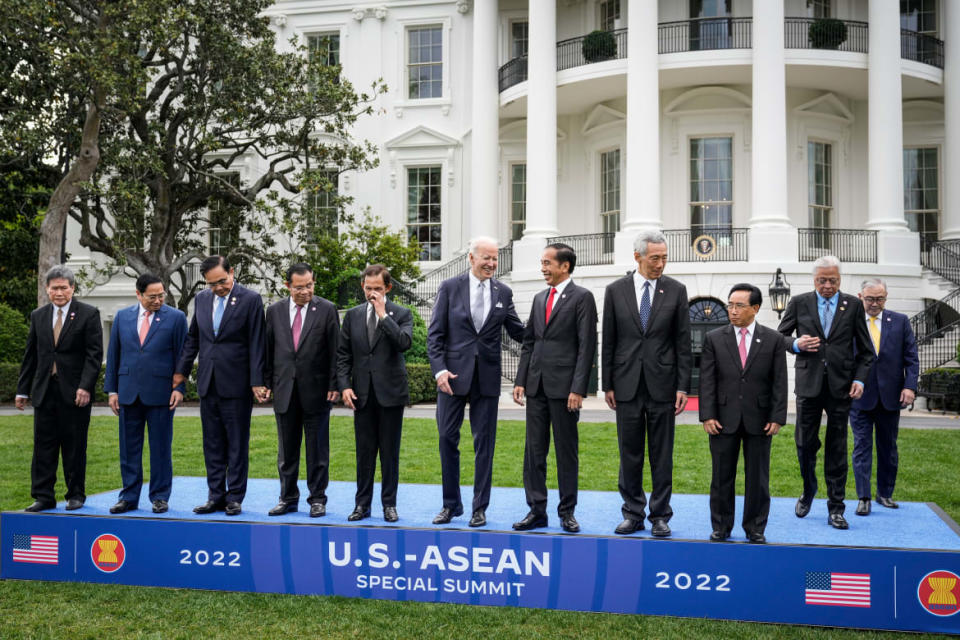
I spoke with Sullivan shortly after he returned with the president from the Middle East, where he stressed that U.S. foreign policy priorities and strategies are undergoing their most sweeping shifts in decades.
“We have fully entered the post-post-Cold War era,” says Sullivan. “And whether we like it or not we are going to have to move with speed and substance everywhere to reshape what comes next. The next decade—the 2020s—will be decisive. That’s true both geopolitically and for major transnational issues like the climate crisis.”
At the core of the administration’s approach to reshaping U.S. national security policy, Sullivan says that he has adopted as a guide a concept that dates back to Harry Truman’s Secretary of State Dean Acheson: “situations of strength.” It is an idea that many experts consider not just one of the foundations of post-World War II foreign policy but one of the core reasons the U.S. ultimately won the Cold War. It centered on the idea of maximizing U.S. advantages militarily, economically, and politically in key regions of the world.
Sullivan says, “The goal is to create situations of strength—in Europe, in the Indo-Pacific region and in the Middle East. We want to make sure that in those regions we are in a stronger position than any of our potential competitors, to make sure that trends are running in our direction, rather than against.”
While much of the talk concerning the Middle East trip was around momentary issues, core priorities throughout focused on longer term questions. Sullivan, who described the meetings in Israel as warm and highlighted the possibility for progress both with the Israelis and on key Palestinian concerns, spoke of the meetings in Saudi Arabia with regional leaders in terms of four priority areas.
First, deepening Israel and Iraq’s integration into the region. The goal was to develop ideas about how to normalize relations over the next 18 months to two years. Second, working with the Saudis to extend the ceasefire in the proxy war they’re fighting against Iran-backed fighters in Yemen, and moving toward a lasting peace settlement. A third area of discussions focused on gaining assistance reducing world energy prices, with action expected from OPEC in the coming weeks. Finally, there was a strategic conversation about Saudi orientation vis a vis the U.S., China, and Russia.
Sullivan cited Saudi commitments on 5G broadband technology, clean energy, and global infrastructure as areas in which the U.S. sees China as a competitor, and in which the administration feels steps are now being taken to create new opportunities for the U.S.
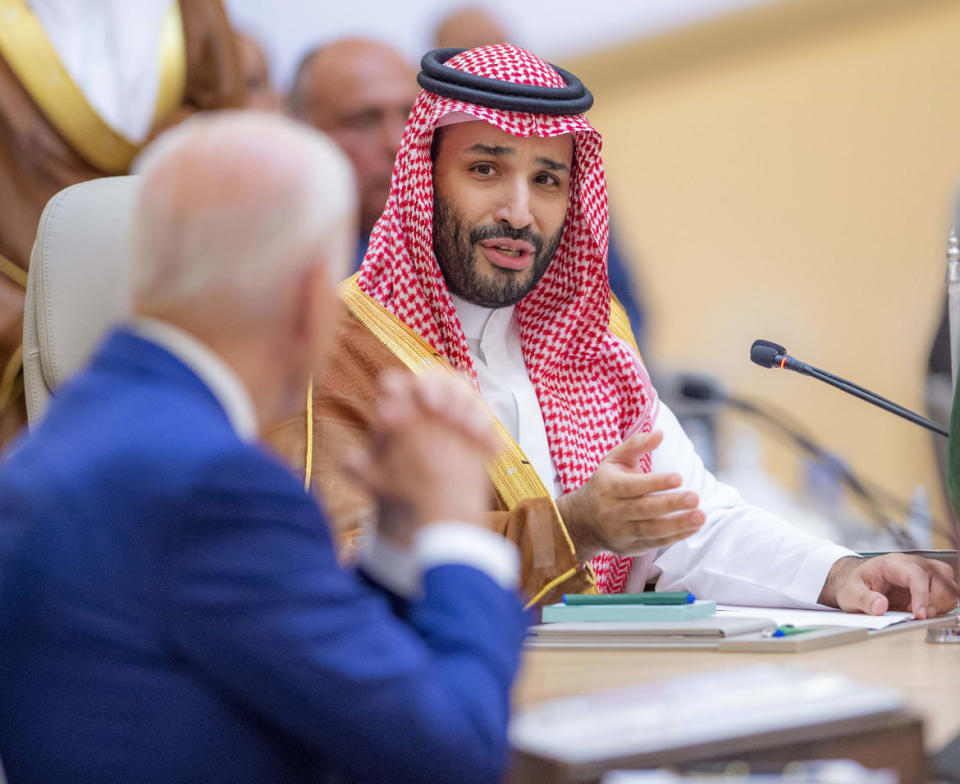
While the president was criticized at him for his friendly “fist bump” with Saudi Crown Prince Mohammed bin Salman (MBS), who U.S. intelligence says is directly responsible for the murder and dismemberment of Washington Post journalist Jamal Khashoggi, Biden did confront MBS directly on the issue, earning the support of Khashoggi’s widow. Making progress on human rights was also underscored as a prerequisite for further deepening the U.S.-Saudi relationship. Biden noted that if there were no progress on these issues, it would hamper the U.S. ability to move forward on the rest of the agenda for the relationship.
Other issues that arose were advancing Israel’s strategic integration within the region, doing the same with regards to Iraq, and supporting de-escalation with Iran. The administration has been careful not to set a final deadline for Iran to accept or not the proposed new version of the Joint Comprehensive Plan of Action (JCPOA) nuclear deal, but it is clear that the timetable for Tehran to do so is not indefinite, and is likely just another month or two.
One European diplomat with whom I spoke suggested that the U.S. came to reverse its hard-line stance regarding the Saudis because the war in Ukraine drove home the point that on major challenges—while the U.S. may remain uniquely strong—we still require friends and allies to achieve our goals.
Sullivan spoke cautiously of how he felt the next few months of the Ukraine conflict were likely to unfold. While he emphasized that the Russians have “staying power questions centering on their ability to reconstitute munitions, manpower, and effective fighting forces,” he does expect that the grinding war in Eastern Ukraine is likely to continue for the foreseeable future. He anticipated that ultimately there would be a move by Ukraine to break up Russia’s hold on Southeastern Ukraine. This would not only achieve the goal of pushing back Russia but also of dissuading them from re-initiating efforts to seize Kyiv and Odessa.
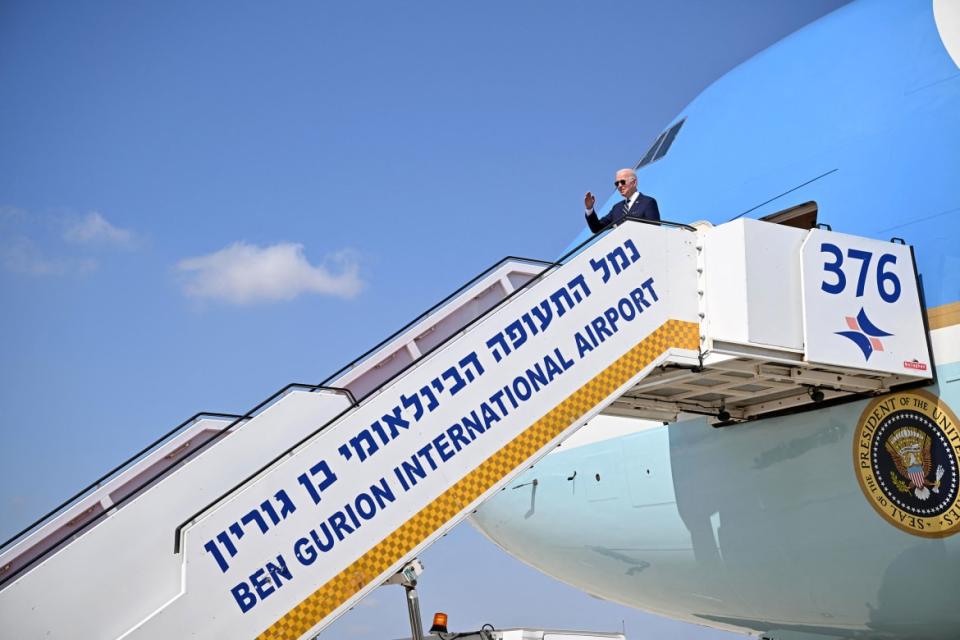
Sullivan noted that while Ukraine seeks and requires new weapons, what may be most important in the months ahead is ensuring they have enough sufficient trained personnel to defend effectively and mount counter-offensives. The goal, Sullivan says, is putting Ukraine in the strongest possible position on the battlefield, thereby putting Ukraine in a position of strength at the negotiating table.
Finally, as efforts in the Mideast and at the European meetings also indicate, key goals include helping to reduce Europe’s dependence on Russian gas, capping the price of Russian oil, and working to keep the price of oil at a sustainable level.
American Institutions Might Not Be Crumbling After All
When weighing the greatest risks the world faces in the year ahead, a handful loom largest. One is whatever the next phase of the war in Ukraine may be and how it may impact both the outcome of the war and Western objectives to contain Russia. Others, related, are potential looming shortages in both global energy and food markets associated with the war and the consequences of those shortages from greater inflation worldwide to famines and related instability. Finally, in speaking to other senior administration officials, another area being closely monitored is China’s tense relationship with Taiwan.
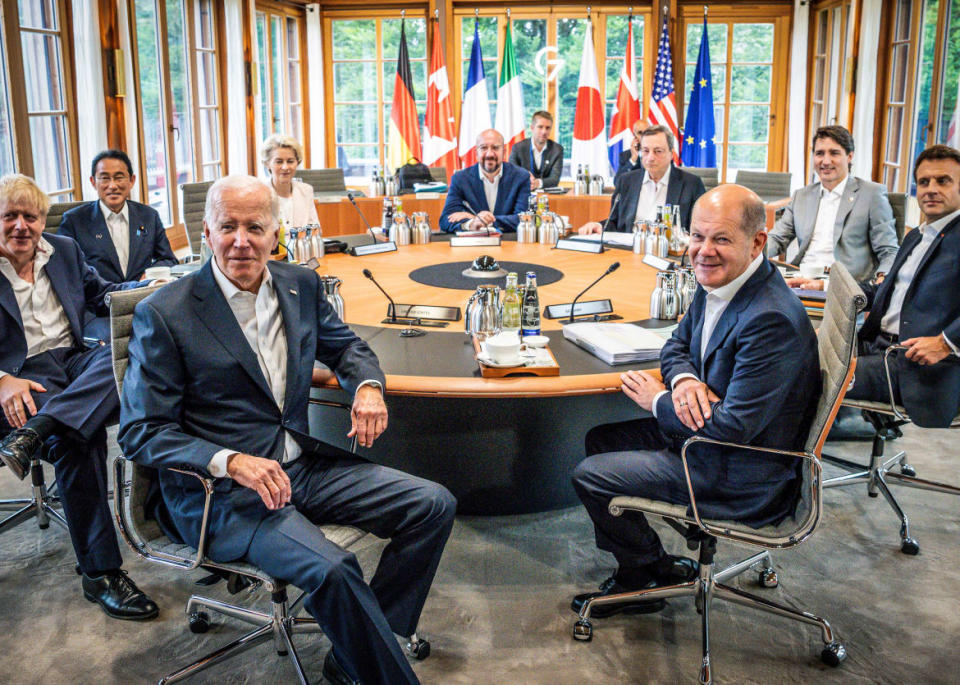
Sullivan describes four hallmarks of the Biden administration approach to foreign policy. These include “an overriding focus on alliances with core democracies—including NATO, the Quad, the G7 (which he called ‘effectively moribund before President Biden came into office). These are the partnerships central to the way we think about and tackle big ticket items, the biggest issues we face.”
A second hallmark is the effort “to connect the Indo-Pacific region to Europe and vice versa.” Here he cited the AUKUS initiative (the U.S., U.K. and Australia), engaging countries of the Indo-Pacific in the Ukraine effort and working with Europe to prepare for Taiwan contingencies—including the possibility that China invades the island nation it sees as its own.
The third hallmark is creating a new economic model that is not dependent on the traditional free trade agreement model. “In our Indo-Pacific and Americas economic deals, we are promoting integration but not via old neoliberal models. Rather our focus is on things like strengthening and building supply chains, addressing issues of equity, combating climate change,” Sullivan said. The administration’s efforts to create a minimum global corporate tax is also consistent with this new approach to tackling global economic challenges.
Separation of Church and State Is Crumbling Before Our Eyes
It is also related to the fourth hallmark cited by Sullivan—which is the adoption of new and unusual forms of integration and international cooperation. Here he cited the elevation of the Quad, AUKUS, the Indo-Pacific Economic Framework and the I2U2 (a partnership between India, Israel, the U.S. and the United Arab Emirates, a group that met during the recent Mideast trip).
It is striking that such wide-ranging diplomatic initiatives are taking place at a moment when economic, security, and climate crises are creating complex and pressing needs—and when domestic politics is riven by divisions so great that many of our most serious national security threats come from within.
Each of the initiatives Sullivan describes is, of course, fraught with risk, highly complex, and much work remains to be done. Indeed, much of it is work so daunting past presidents have shied away from it, not been up to it or, frankly, during the last administration, did not fully understand.
But even Biden’s critics must acknowledge that his administration to date—and the past two months, in particular—have revealed an extraordinary personal effort by an engaged, globally respected president, and a strategic vision from him and his team that is both innovative and long overdue.
Get the Daily Beast's biggest scoops and scandals delivered right to your inbox. Sign up now.
Stay informed and gain unlimited access to the Daily Beast's unmatched reporting. Subscribe now.

